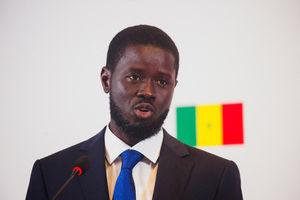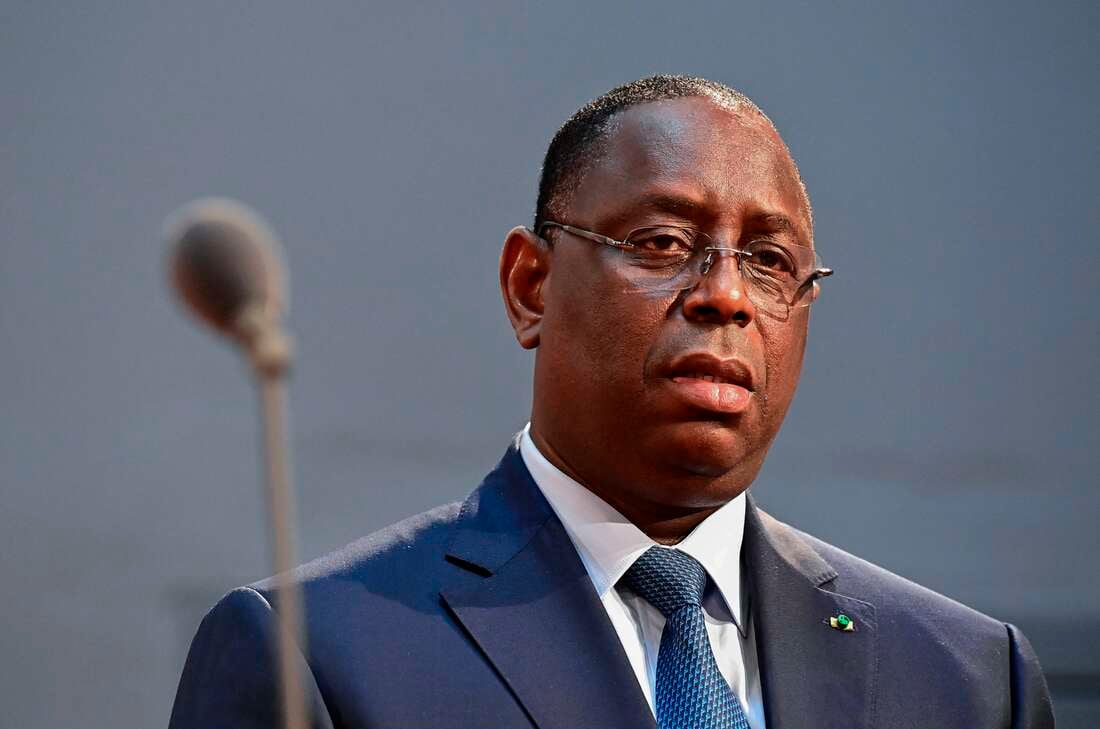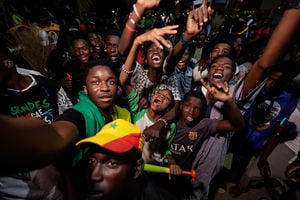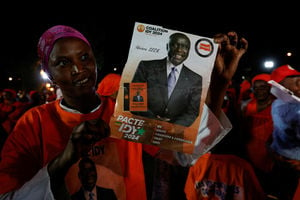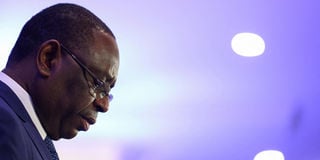
Former President of Senegal Macky Sall.
In Senegal, politicians may retire, but their shadows linger longer.
This week, Macky Sall, the former president of Senegal, was trending on social media platforms after he sent out a video statement addressing his supporters.
Sall was popular and unpopular for two reasons: He came to power after defeating incumbent Abdoulaye Wade. But then he wanted to stay longer than two terms, sparking massive protests. He left power in April this year after being forced to hold elections and agreeing to leave power.
After the new government of Bassirou Diomaye Faye took power, Sall left the country for Morocco. But then the new government offered Sall a window of opportunity: It dissolved parliament and called for snap elections, ostensibly to get the right support from new lawmakers after growing frustrated with constant political defeats in the chamber.
In the footage, the exiled former president addresses supporters during a political rally via the social media platform WhatsApp. The phone is held up to the microphone to amplify his voice to the crowd, which occasionally cheers as he speaks.
Sall has been living in self-imposed exile in Morocco since leaving Senegal following the inauguration of his successor, President Bassirou Diomaye Faye, who defeated his hand-picked candidate in the March 2024 elections.
Litmus test
The elections, scheduled for November 17, are seen as a litmus test for the president. But the opposition sees them as an opportunity for a comeback, and Sall's party (Alliance for the Republic) has regained momentum to unite the opposition to prevent the dominance of the ruling Pastef party.
This means that the elections have become a showdown between two of Senegal's most influential political figures today - Sall as the head of his Takku Wallu Senegal coalition's list of candidates, and Prime Minister Ousmane Sonko as the head of Pastef's list of candidates.
Sall relinquished his international post as Special Envoy for the Paris Pact for People and the Planet (4P) to re-enter politics.
The race also includes two smaller but prominent opposition coalitions represented by former Prime Minister Amadou Ba, Faye's main challenger in the March presidential election, and Dakar Mayor Barthelemy Dias.
A total of 41 parties, coalitions and political groups have been approved by the Interior ministry.
The video of Sall addressing his supporters via WhatsApp is one of dozens of campaign rallies held across the country since October 27. Sall had raised hopes among his supporters that he would return, but he changed his mind without explanation.
However, the image of him addressing his supporters via WhatsApp has become a source of ridicule for some Senegalese and Gambians across the border, especially supporters of former Gambian dictator Yahya Jammeh.
Jammeh was a thorn in the flesh of successive Senegalese leaders during his two-decade iron-fist rule in Gambia, the smallest African nation. As a result, Senegalese politicians desperately wanted him out, and the Senegalese army, led by Sall, took the lead role in his eventual forceful departure following Gambia's disputed 2016 elections.
Sall mocked Jammeh when the former Gambian leader used WhatsApp to address his supporters. And now he finds himself in a similar situation.
Arrest warrant
It is unclear, however, why the former Senegalese leader chose to go into exile, even though there is no arrest warrant against him, at least not in public. But given the attitude of his predecessor's administration, it is understandable why he might have made this decision.
Faye campaigned on a platform of fighting corruption, which was reportedly rampant under Sall's watch. Many of the former president's allies have either been arrested in connection with alleged corrupt deals or have been banned from travelling to face investigations over the past six months.
The new government has also sought justice for victims of human rights abuses during the last days of the Sall regime, when young people took to the streets to protest his failed bid to extend his stay in power. Both Faye and Sonko were imprisoned as part of that nationwide crackdown. An amnesty law passed before the presidential election prevents any action on the matter.
In October, the government unveiled an ambitious 25-year development plan that it promised would boost the economy by revitalising local industry and creating jobs.
But none of this is tenable with a dissolved parliament, which Faye described as "the last obstructive manifestation of a fallen regime," hence his decision to call for early elections.
A victory for the opposition coalition could hinder Pastef's chances of fulfilling his promises of reform, which analysts say could destabilise the country, considered one of the few stable democracies in a region rife with instability, including coups. Senegal is the only former French West African colony that has never experienced a coup.
While public opinion appears to favour Pastef in the upcoming polls, the reality on the ground suggests a tough battle ahead. One main reason for this is that while Sall’s camp has sought to build a stronger coalition, Pastef is toying with the risky venture of going into the elections with a loose coalition.
The party hasn’t come out plainly to speak on the issue, but some of its supporters have been saying it doesn’t want to be tied to political interests that render an unstable coalition in the future.
Sall’s party, the Alliance for the Republic (APR), has forged an alliance that includes 40 political parties, among them the party led by former Prime Minister Idrissa Seck. This led to the formation of the Takku Wallu-Samm sa kaddu inter-coalition.
The latest to join forces with this coalition is the party of former President Abdoulaye Wade, who supported Faye in the presidential elections. Between these two parties, they had a combined 106 of 165 seats in the dissolved parliament.
Pastef competed in that legislative election held in 2022 under the Yewwi Askan Wi coalition that won 56 seats. But by individual party numbers, Pastef had the largest number of seats. Now it hopes to exploit its advantage of incumbency to increase that number to an absolute majority in these elections.
Ruling party
As difficult as that might sound, the ruling party seems comforted by historical records. Senegalese voters have always given elected presidents with a majority in the Assembly, giving them a free hand to pursue their programme and implement their reforms.
And as the election draws closer, strong voices once behind Sall have either stayed quiet or dumped the former president altogether.
Amadu Ba, for instance, who was hand-picked by Sall to run under the then ruling coalition back in March, is heading a new coalition that is running independently.
Reports suggest that even a blood brother of Sall has taken part in his party’s support of Pastef.
Renowned musician, Youssou N’dour, a former Sall ally who once served in his cabinet, summed up the general feeling, saying that every Senegalese should take their responsibilities and vote in good conscience for the sake of their country.
"Since 2019, 2020, I have observed and understood certain things. I have especially realised that nobody needs to be influenced. In this case, we must let people make their own decisions.
“That’s what I did. Trying to change the outcome would have been pointless. We are heading toward elections, and the outcome of the ballots will determine the future. The proof is that a new President has been elected, namely Bassirou Diomaye Faye, to whom I send my greetings," he said.

